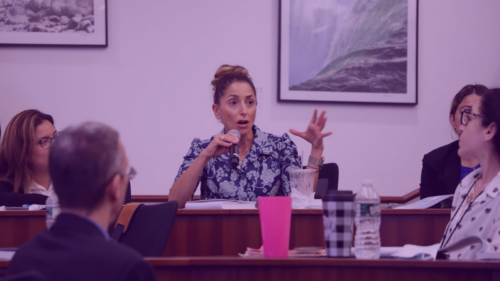Creating a more effective and fair legal system is not just about changing statutes and procedures: it also means changing the ways in which justice is thought about and defined. Reimagining what justice means has been a central mission of our organization for over 25 years. Some of the most enduring changes have required shifts in culture and attitudes towards justice more than formal changes in laws or procedures. If we can change culture in places where power is most concentrated, then prosecutor offices have the potential to serve as sites of lasting transformation.
For someone arrested for a criminal offense, prosecutors are arguably the most powerful figures in the legal system. Prosecutors decide what, if anything, to charge—a decision that can be life-altering before and after a conviction. Whether a case goes to trial or ends in a plea deal, as the vast majority of criminal cases do, prosecutors play a major role in determining a sentence. Even the line between violent and non-violent offenses—of great consequence for someone facing charges—is largely drawn by prosecutors.
Yet prosecuting attorneys lack reliable standards to guide them in making these vital decisions. In a recent survey conducted by the Center for Justice Innovation (formerly Center for Court Innovation), 274 prosecuting agencies responded to questions about their decision-making processes and values. The results of this survey suggest that prosecutors gauge how seriously to treat an offense based, in part, on the risk of future harm and the feelings of survivors. Yet neither of these can be measured with precision, presenting the danger that unconscious bias might warp prosecutors’ decision-making.
The report also indicates that prosecutors’ practices may not be producing the results they intend. Though many attorneys cite rehabilitation as one of their objectives, prosecutor offices overwhelmingly rely on incarceration in cases categorized as violent. But the evidence shows that incarceration actually hinders, not helps, rehabilitation. For low-level crimes, there are indications that not prosecuting at all may significantly reduce the likelihood of future arrest. In other words, the typical strategy seems to be counterproductive. And because survivors of crime often belong to the same communities that suffer the most from mass incarceration, the conventional approach is not likely to do justice to victims, either.
The survey found a growing appetite for new, more productive strategies among prosecutors. This finding is underscored by a number of recent developments. In March of 2022, Manhattan District Attorney Alvin Bragg spearheaded the creation of a new department aimed at safely reducing the use of jails and prisons. Later, in October, the Center for Justice Innovation teamed up with the Institute for Innovation in Prosecution to co-host a course on how prosecutors can respect the dignity of the people they encounter in the legal process and respond to the trauma underlying many of their cases. Manhattan prosecutors followed suit, attending a training session on the harms of incarceration and the community-based alternatives that they can rely on instead, even for those accused of serious felonies.
Rigorous standards for prosecutors to reduce the potential for unconscious bias may be far in the future. But ongoing efforts to create a culture more open to community-based and trauma-informed alternatives to incarceration do suggest how the power of prosecutors might be leveraged to reduce, rather than expand, the footprint of a harmful legal system.
